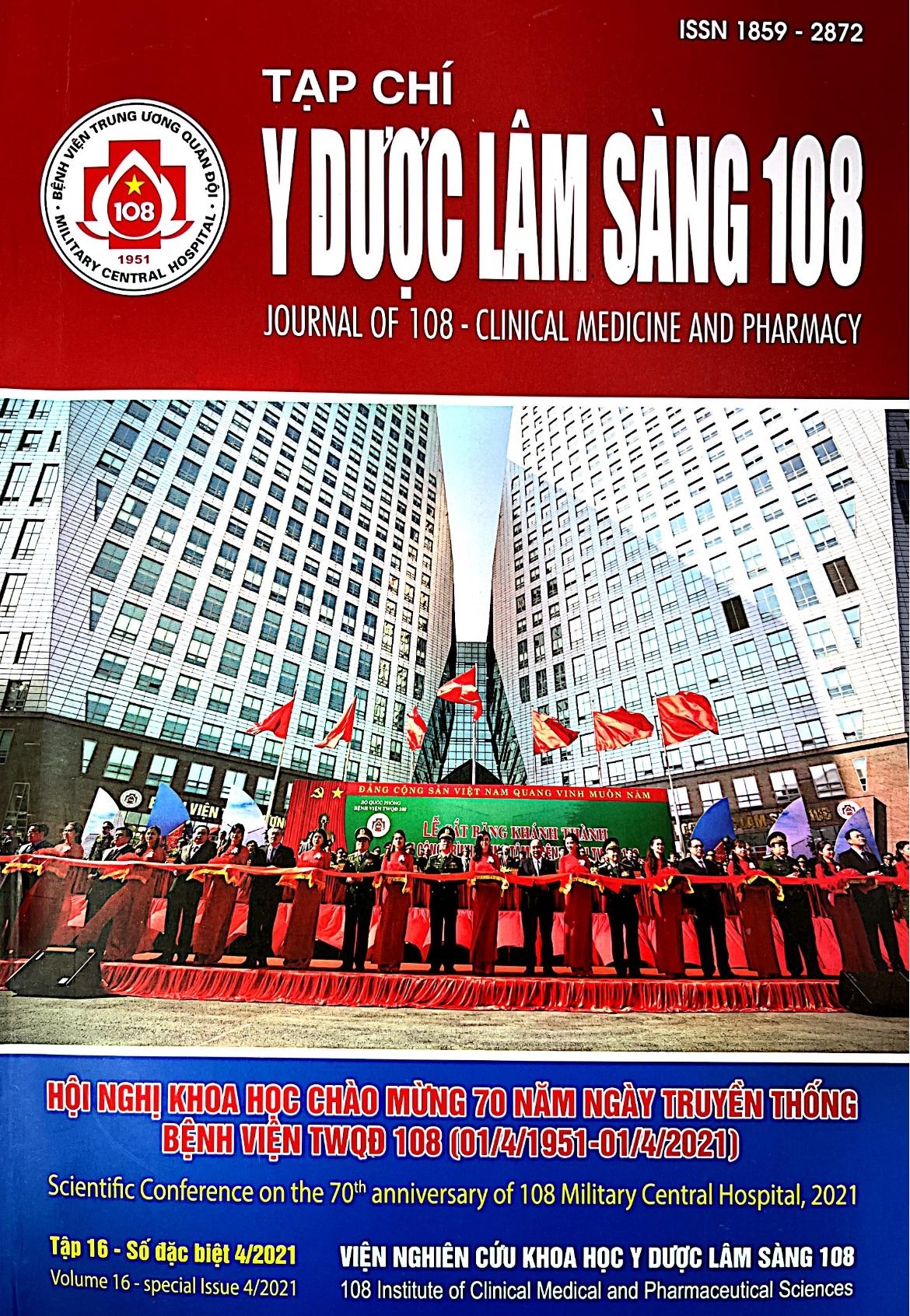Outcome of laparoscopic resection for rectal cancer through the data of 346 patients in 108 Military Central Hospital
Main Article Content
Keywords
Abstract
Objective: To evaluate the results of laparoscopic rectal cancer resection. Subject and method: A cross-sectional, descriptive study, over 346 rectal cancer patients undergoing laparoscopic resection in 108 Military Central Hospital from June 2018 to October 2020. Result: Male/ female: 2.2/1, the mean age was 61.8 ± 11.9 years. The rate of neoadjuvant chemoradiation therapy (NCT) was 79.7%. Preoperative period I, II, III were 13.0%, 15.6%, 71.4%, respectively. Open surgical conversion rate of 2.6%. The mean operative time was 125.9 minutes, the mean blood loss was 63.9ml. The rate of Miles surgery in the middle and lower rectal cancer group with NCT was 20.2%. Postoperative stage 0, I, II, III were 17.5%, 56.4%, 9.1%, 17.0%, respectively. Average follow - up time 17.8 months. The rate of complication after surgery was 14%. The mortality rate was 2.6%. The rate of local recurrence was 4.3%. The rate of distal metastasis was 3.8%. Conclusion: The laparoscopic rectal cancer resection is feasible, safe, effective. Neoadjuvant chemoradiation therapy to reduce the tumor stage, to increase the rate of sphincter preservation.
Article Details
References
2. Glynne-Jones R, Wyrwicz L, Tiret E et al (2017) Rectal cancer: ESMO Clinical Practice Guidelines for diagnosis, treatment and follow-up. Annals of Oncology 28: 22-40.
3. National Comprehensive Cancer Network (NCCN) (2017) Clinical practice guidelines on oncology. Rectal cancer version 3.2017.pdf.
4. Campos FG (2013) The life and legacy of William Ernest Miles (1869-1947): A tribute to an admirable surgeon. Revista da Associação Médica Brasileira 59(2): 181-185.
5. Heald RJ, Husband EM and Ryall RDH (1982) The mesorectum in rectal cancer surgery the clue to pelvic recurrence?. Br J Surg 69(10): 613-616.
6. Lange MM, Rutten HJ and van de Velde CJH (2009) One hundred years of curative surgery for rectal cancer: 1908-2008. European Journal of Surgical Oncology (EJSO) 35(5): 456–463.
7. Lujan J, Valero G, Biondo S et al (2013) Laparoscopic versus open surgery for rectal cancer: Results of a prospective multicentre analysis of 4,970 patients. Surg Endosc 27(1): 295-302.
8. Memon MA, Awaiz A, Yunus RM et al (2018) Meta-analysis of histopathological outcomes of laparoscopic assisted rectal resection (LARR) vs open rectal resection (ORR) for carcinoma. The American Journal of Surgery 216(5): 1004-1015.
9. George JC (2018) Rectal Cancer Modern Approaches to Treatment. © Springer International Publishing AG 2018.
10. David EB, Steven DW, Janice FR (2019) Gordon and nivatvongs’ principles and practice of surgery for the Colon, Rectum, and Anus. © 2019 Thieme Medical Publishers, Inc.
 ISSN: 1859 - 2872
ISSN: 1859 - 2872
